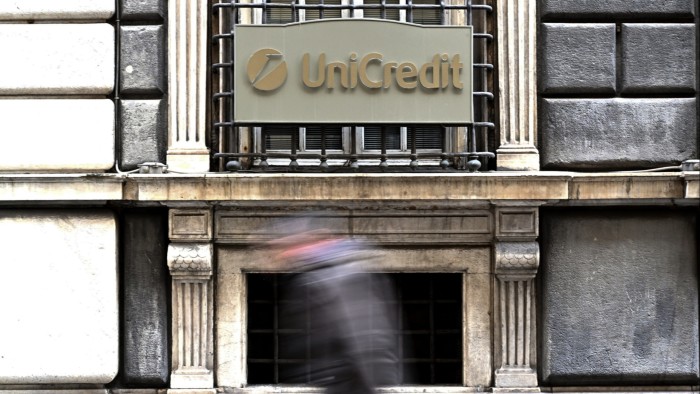Share this @internewscast.com
Stay informed with free updates
An Italian court has affirmed that UniCredit must adhere to a government directive requiring its withdrawal from Russia in order to finalize the acquisition of its competitor, Banco BPM. This decision poses a challenge for CEO Andrea Orcel.
The request by Giorgia Meloni’s government is “totally legitimate” and “there can be no doubt about the fact it is proper”, the court ruled.
But it partially upheld an appeal by UniCredit on other measures demanded by Rome as conditions of the takeover.
In the groundbreaking verdict released on Saturday, conditions set by the government regarding BPM’s post-merger loan-to-deposit ratio and the upkeep of both banks’ project finance portfolios within Italy were invalidated.
This marks the first instance where the administrative court has overturned any government-imposed conditions on a strategic acquisition, effectively annulling the current version of the government’s decree.
Orcel had previously warned that the deal could fall apart if the government did not relax its requirements.
It was not immediately clear whether either side in the case would appeal further, or whether the government would redraft its decree to take into account the judges’ decision.
That leaves the deal in limbo. The BPM offer period, which has already been extended once due to the court case, ends on July 23. If the government does not rewrite its decree, UniCredit could ask for the deadline to be extended, or one of the parties could appeal against the court’s decision; the deadline could also be suspended by the regulator.
BPM said in a statement it was pleased with the outcome of the appeal and called on UniCredit to “clarify its intentions” on the takeover.
UniCredit did not immediately comment on the decision. UniCredit’s board is due to meet in the coming days, according to people familiar with the matter.
UniCredit is Italy’s second-largest lender. It launched concurrent takeover bids for BPM and Germany’s Commerzbank last year.
It has significantly reduced its exposure to Russia since the country’s full-scale invasion of Ukraine in 2022 but remains one of two European lenders to operate a local subsidiary.
Orcel has so far refused to exit the country altogether to avoid incurring a balance sheet hit. The exit would have to be authorised by Russian authorities.








